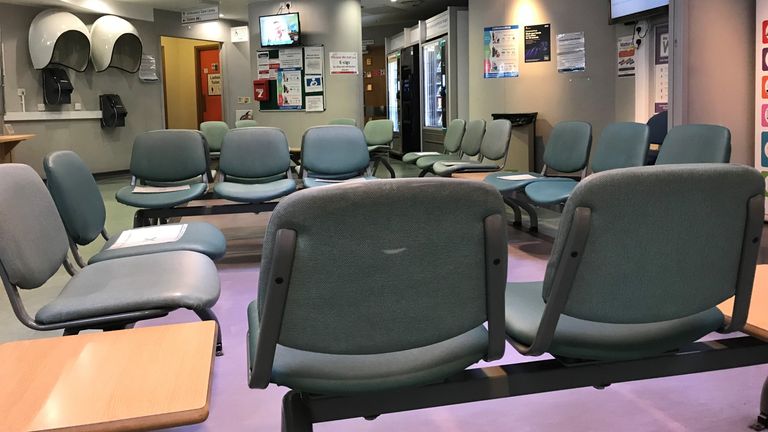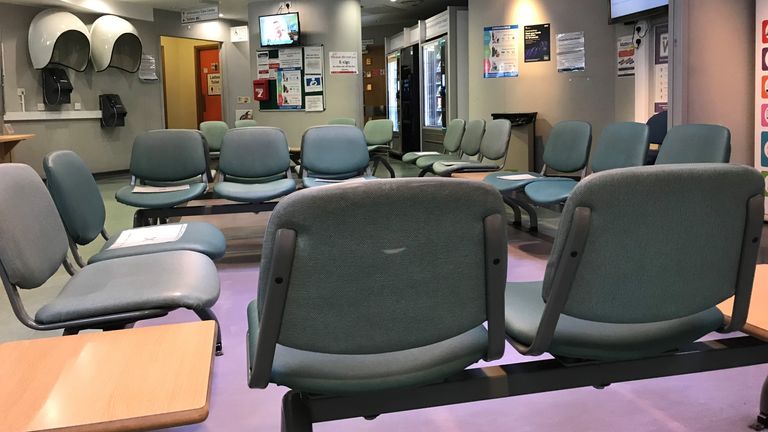
NHS guidelines for genetic testing will miss half of the population that is carrying inherited genetic traits linked to cancer, a new study warns.
The study assessed patients who had received a test from a private sector provider to see who would have been eligible for the same test under the NHS.
According to the team at the Institute for Cancer Research (ICR), the NHS guidelines for testing would have excluded many people with “actionable” genetic differences.
These differences raise people’s risk of developing cancer and patients who don’t know about them are unable to benefit from potentially life-saving monitoring, screening and preventative treatment.
While cancer is not typically hereditary, some types of cancer – “mainly breast, ovarian, colorectal and prostate cancer” according to the NHS – run in families and are influenced by inherited genes.
The NHS has eligibility guidelines for who can be screened for these genes, which are intended to ensure that the service’s care is cost-effective.
But the new study, published in the journal Scientific Reports and led by ICR scientists, suggests “the criteria for testing are too tight” and excludes patients who could benefit.
The researchers analysed 152 patients who were referred for multi-gene cancer panels in the private sector between 2014 and 2016.
They detected harmful or probably harmful gene alterations linked to personal or family history of cancer in 15 out of 152 people, but around half of those found (seven in 15) would not have been eligible for testing under NHS guidelines.
Once an “actionable” genetic mutation was identified, clinicians can manage the patient and their family’s wellbeing in a different way, helping them check for cancer and try to prevent it from developing.
But the study also found some negative consequences for testing people outside of the eligibility criteria, in particular discovering more patients with what are called genetic “variants of unknown significance” where there is no clear treatment response.
These variants were identified in 34% of the study’s participants, which means that wider testing – which would catch the 50% who aren’t eligible but have actionable genetic variants – would then increase pressure on the NHS and cause unnecessary anxiety among some patients.
According to the ICR, the eligibility criteria should strike a balance between identifying these high-risk patients and minimise the level of uncertainty, being less stringent than now but not as permissive as the private sector.
Professor Ros Eeles at the Institute of Cancer Research, London, said: “We feel there is a strong case to widen access to cancer gene testing on the NHS.
“There is however also a trade-off to doing so, through an increased chance of ambiguous findings which need follow-up and can worry patients unnecessarily.
“We need larger studies to work out exactly where the revised NHS threshold for testing should be, to maximise the benefit in people at high risk of cancer, while minimising the burden on patients and the NHS of follow-up investigations,” added Professor Eeles.
Professor Kristian Helin, the chief executive at ICR, added: “Over the last 20 years, we have gained a far greater understanding of the inherited genetic changes which can increase a person’s risk of developing cancer.
“That increasingly opens up the possibility of genetic testing to identify those people at the highest cancer risk, and to support them with strategies for cancer prevention or early detection.
“Unfortunately, accessing genetic testing on the NHS can be complicated and tends to be restricted to those people with a strong family history,” added Professor Helin.
“Our new research shows that we are missing people who could benefit from genetic testing. I hope the findings will ultimately help improve national testing guidelines so that we can help more people at high risk of cancer.”







More Stories
5 Reasons Why Everyone Should Look Forward to Save Earth Mission’s Takeoff Event
Save Earth Mission’s Takeoff Event Countdown Starts: Get Ready to Witness History
The Save Earth Mission: A Global Movement Towards a Sustainable Future